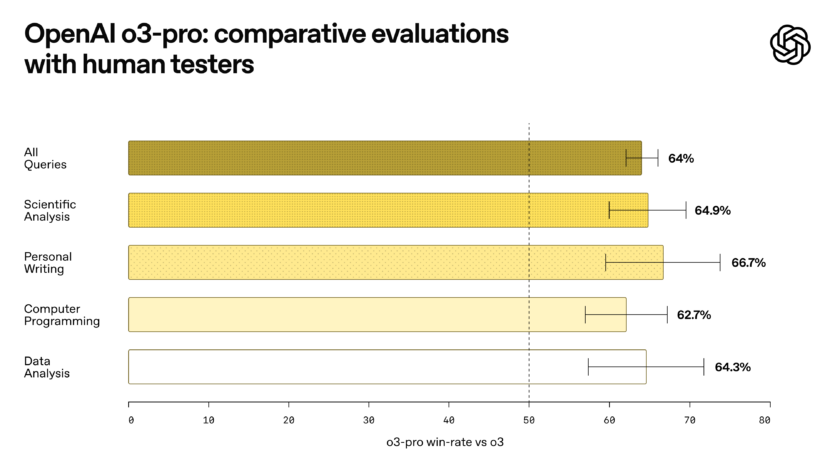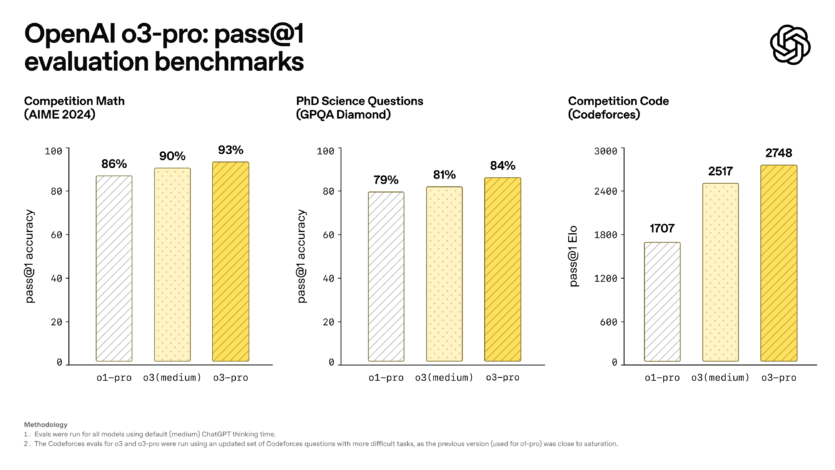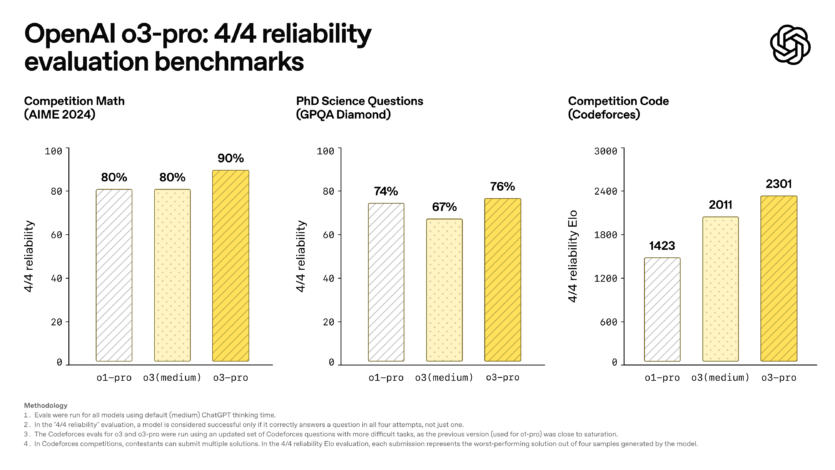
The artificial intelligence industry is always in full swing, and something interesting happens almost every day. This time, OpenAI presented a new, «upgraded» version of its reasoning AI — o3-pro. This version is a logical continuation of the o3 model, which came out a little earlier. And now it’s even better. At least, that’s what OpenAI says. Let’s find out what’s new and why those who work with code, texts, or just want to have a smart digital assistant should know.
So, OpenAI is officially launched The o3-pro model, which he considers his most capable to date. Unlike most classical language models, models with «reasoning» (i.e., mental logic) are designed to work with problems step by step. That’s why they are better suited for math, physics, programming, and complex queries.
OpenAI says that all testers preferred o3-pro to regular o3. The model performed particularly well in industries that require clarity, logic, and structure: science, education, programming, business, and writing support. Users also praised the model’s accuracy, clarity, and ability to follow instructions.
OpenAI o3-pro is available in the model picker for Pro and Team users starting today, replacing OpenAI o1-pro.
Enterprise and Edu users will get access the week after.
As o3-pro uses the same underlying model as o3, full safety details can be found in the o3 system card.…
— OpenAI (@OpenAI) June 10, 2025
It should be noted that o3-pro has access to a set of tools. That is, it can search the Internet, analyze files, work with visual data, run Python code, use memory to personalize answers, and much more. However, there is a small caveat — due to the complexity of answer processing, the model is slightly slower than the previous version of o1-pro. But is this a problem if the answer is really good?
There are a few limitations. For example, temporary chats with the model in ChatGPT are currently disabled due to technical issues that OpenAI is still solving. Image generation is also unavailable – if you need to draw a cat with Einstein’s face, you’ll have to use other models. Also, Canvas, an AI-enabled workspace, is not yet compatible with o3-pro.



But it has something to boast about in terms of performance. According to OpenAI, o3-pro has shown great results in benchmarks. On the AIME 2024 test, which checks the math skills of models, it outperformed Google’s flagship AI — Gemini 2.5 Pro. And on the GPQA Diamond test, which focuses on PhD-level knowledge in the natural sciences, o3-pro outperformed Anthropic Claude 4 Opus.
The novelty is already available for users ChatGPT Pro and Team, and in a week it will be available for corporate and educational accounts. Also, o3-pro has already been integrated into the developer API, meaning that anyone who uses OpenAI in their services can start experimenting today.
Interestingly, the rates for using o3-pro in the API are quite attractive: $20 per million incoming tokens and $80 per million outgoing tokens. For those who don’t count in tokens every day: a million incoming tokens is about 750 thousand words. And this is — for a minute — 4 times more than War and Peace» has.
At the same time, OpenAI is reducing the price of access to the o3 model. Although o3 was the most powerful model available from OpenAI at the time of its release, it was not widely used by developers due to its price compared to other alternatives. The Google Gemini 2.5 Pro model offered almost the same performance for a quarter of the cost, while the Anthropic Claude 3.7 models provided better coding performance at a similar price.
Now OpenAI has responded to developer feedback and reduced the price of the o3 model by almost 80%. At launch, the price of the o3 model was $10 per million incoming tokens and $40 per million outgoing tokens. As of today, OpenAI is lowering the price to $2 per million incoming tokens and $8 per million outgoing tokens. This price reduction makes o3 a much more attractive option for developers.
Source: techcrunch, neowin

Spelling error report
The following text will be sent to our editors: